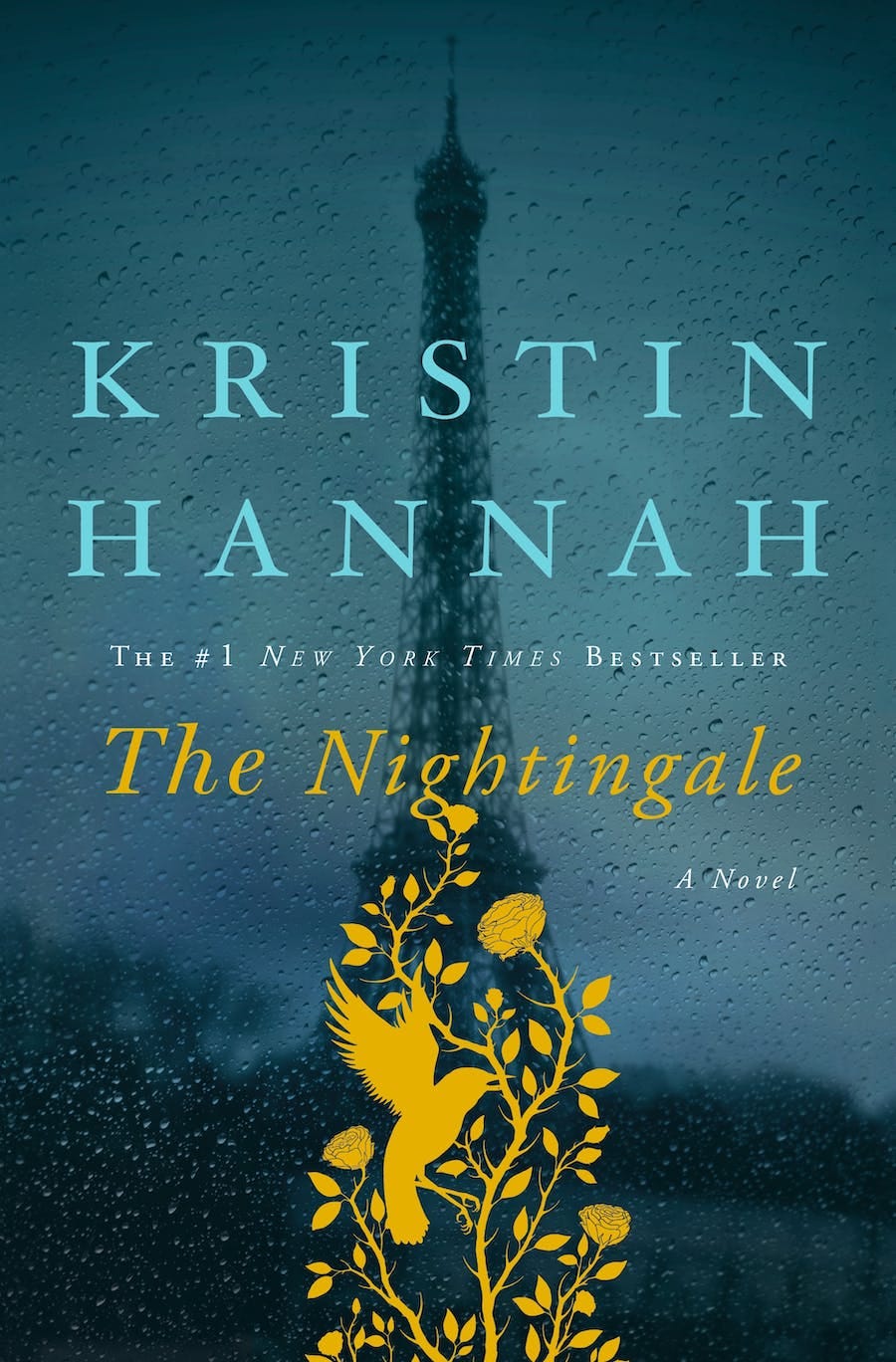The Nightingale by Kristin Hannah
Genre: Historical Fiction
Rating: 3 stars
“If I have learned anything in this long life of mine, it is this: in love, we find out who we want to be; in war, we find out who we are.”
Kristin Hannah’s The Nightingale is a page-turner more than anything else. It pays homage to stories of endurance, bravery and survival of the women who lived through World War II, stories that rarely come to light since history is dominated by the stories of the men who fought in the war. The book focuses on the extraordinary women who struggled to live through the years of the war in Nazi-occupied France.
At the centre of the novel are two sisters, Vianne and Isabelle, who lost their mother when they were young and were consequently abandoned by their drunk father. Instead of being brought together by the tragedy, the age difference between them and their life decisions force them apart. The story picks up in 1939 as an entire generation of young men were being called to war. Vianne is forced to say goodbye to her husband, Antoine, as he goes off to war, leaving her behind with her daughter. Her younger sister, Isabelle, on the other hand, runs away from her Finishing School and finds her way back to her father in Paris, determined to do her part for the cause of Free France.
The story of the two sisters reminded me of a line from the recent adaptation of ‘Little Women’ by Greta Gerwig, “Just because my dreams are different to yours doesn’t mean they’re unimportant.” This line could very well be from this book. While Vianne makes sacrifices and struggles to keep her daughter and house safe, Isabelle makes her way into the secret network of resistors. Vianne’s only aim is to keep those she loves safe as she waits for her husband to be free from the war prison. Isabelle’s rebel streak and impulsive nature act as hurdles in the way of this.
The book is heartbreaking in parts and highlights stories of women that are never spoken about. It is also a love story, but don’t go in expecting any kind of rosy pictures. “Some stories don’t have happy endings. Even love stories. Maybe especially love stories.”
In Isabelle, we get the more obvious strong female lead, who is ready to cross mountains, literally, for the cause. However, Vianne’s character development in the course of the book is what truly stood out for me in the book. The parallel storyline of an unnamed old lady suffering from cancer who is invited to Paris for a reunion makes for an intriguing addition.
It talks about the tough decisions women had to make during the war years. However, it does take a slightly soft take on the story instead of the hard-hitting style of World War II stories featuring men. Hannah often has the tendency to cover action scenes with inner monologue scenes. I would have liked to read more about the Nightingale route and Isabelle’s journey over the Pyrenees. The reason that the book didn’t end up as great as I expected it to be was that in certain places, Hannah forgets details about locations and weather; she makes Isabelle’s beauty more important than her bravery and goes as far as to romanticise war. These things may be rare but are aspects that give the term ‘chick lit’ a bad name. It also takes a historic character with dark and curly hair and gives us a blonde, blue-eyed character instead, which says a lot, given that the story is set smack in the middle of World War II.
The Nightingale is a story that highlights how women’s bodies become battlegrounds during wartime. The decisions made by women led to a shadow war that never came to light in the post-war years because, as Hannah says, “Men tell stories. Women get on with it. For us, it was a shadow war. There were no parades for us when it was over, no medals or mentions in history books. We did what we had to during the war, and when it was over, we picked up the pieces and started our lives over.”

